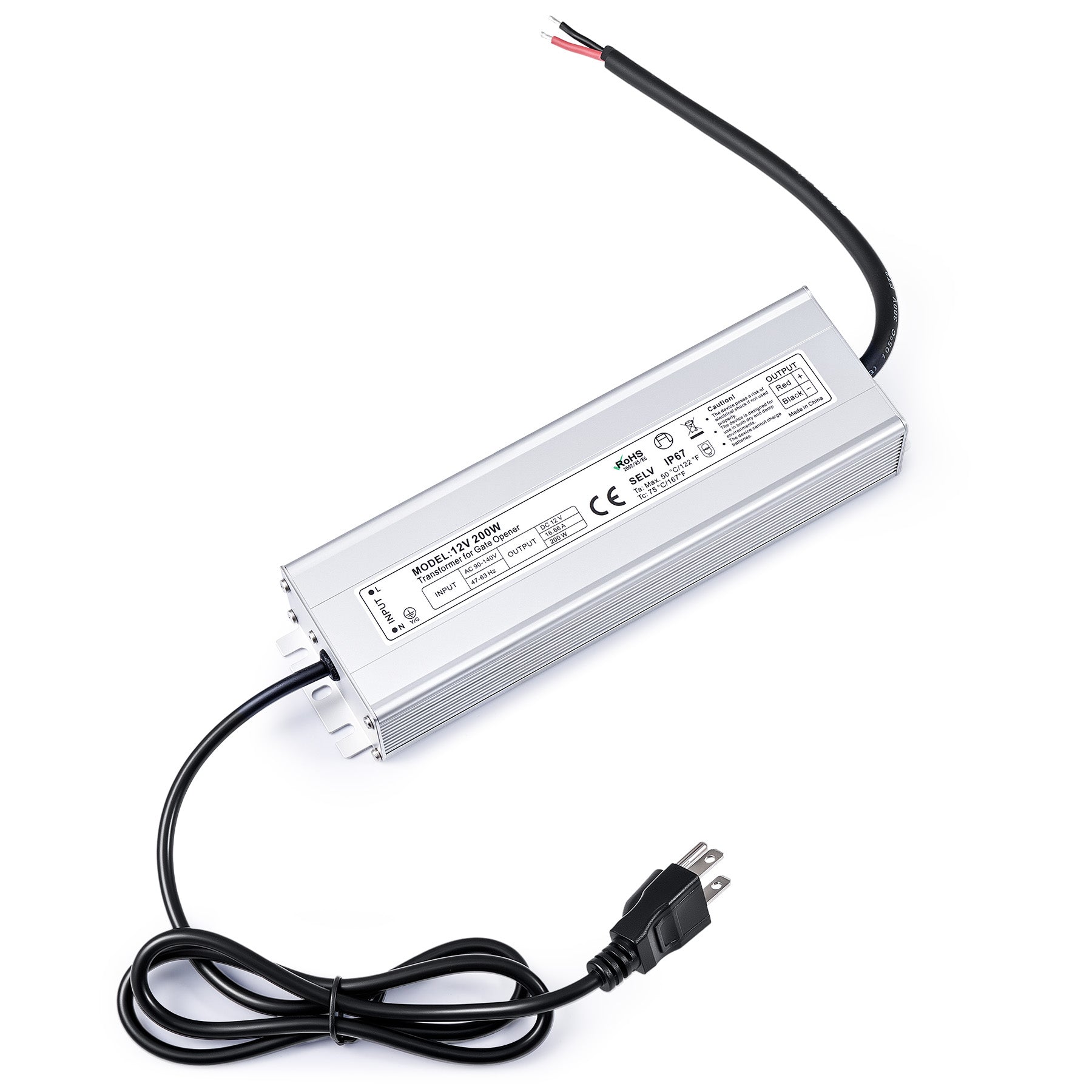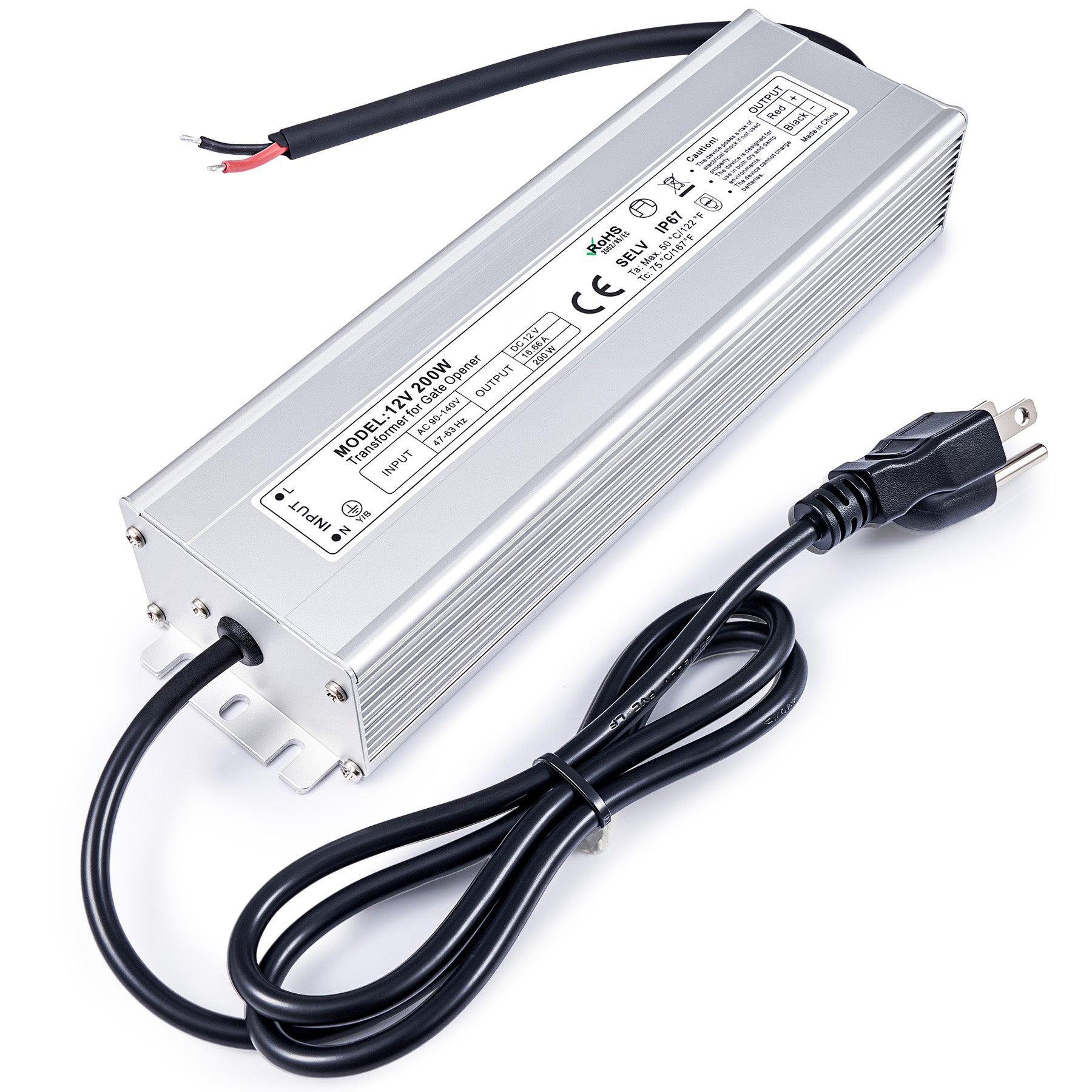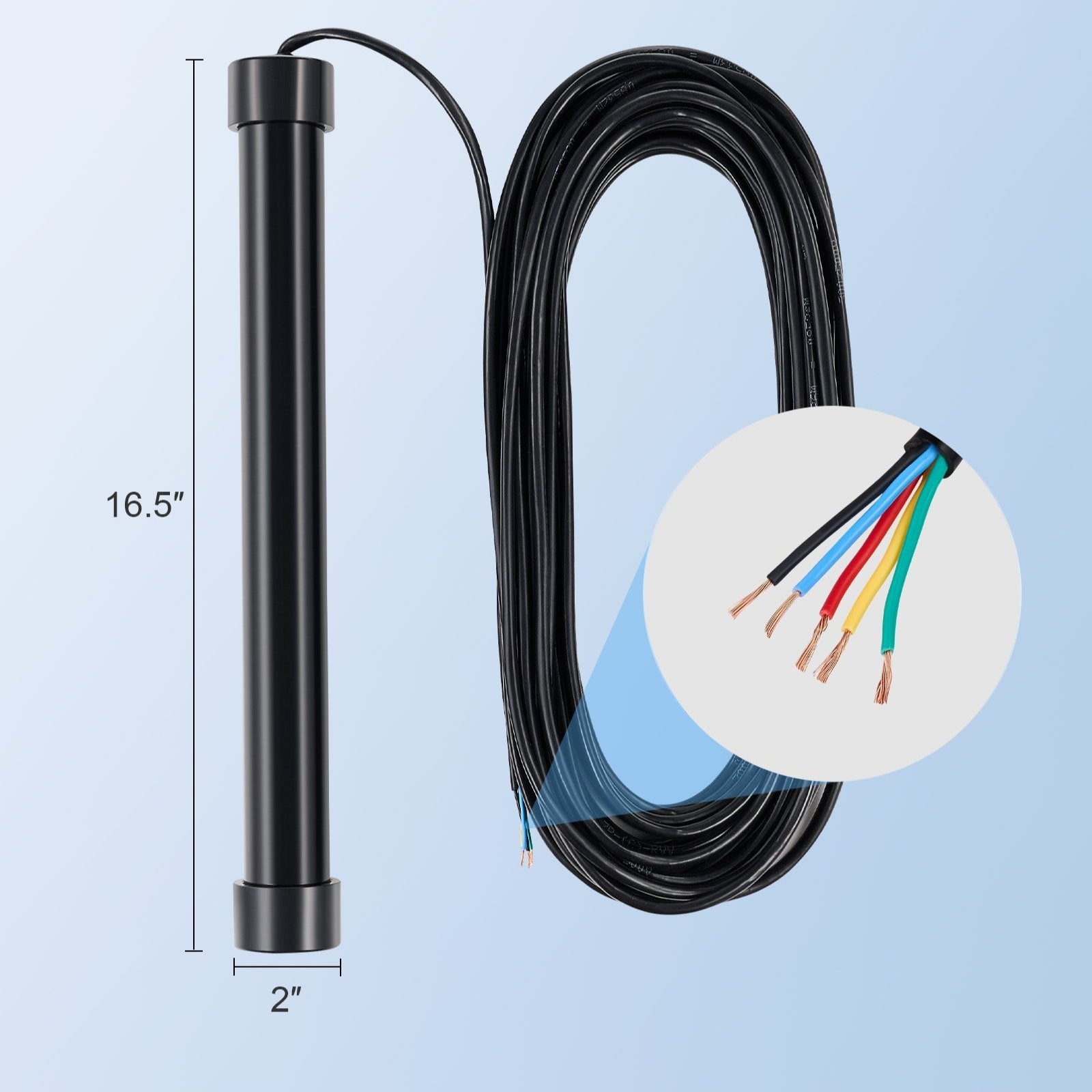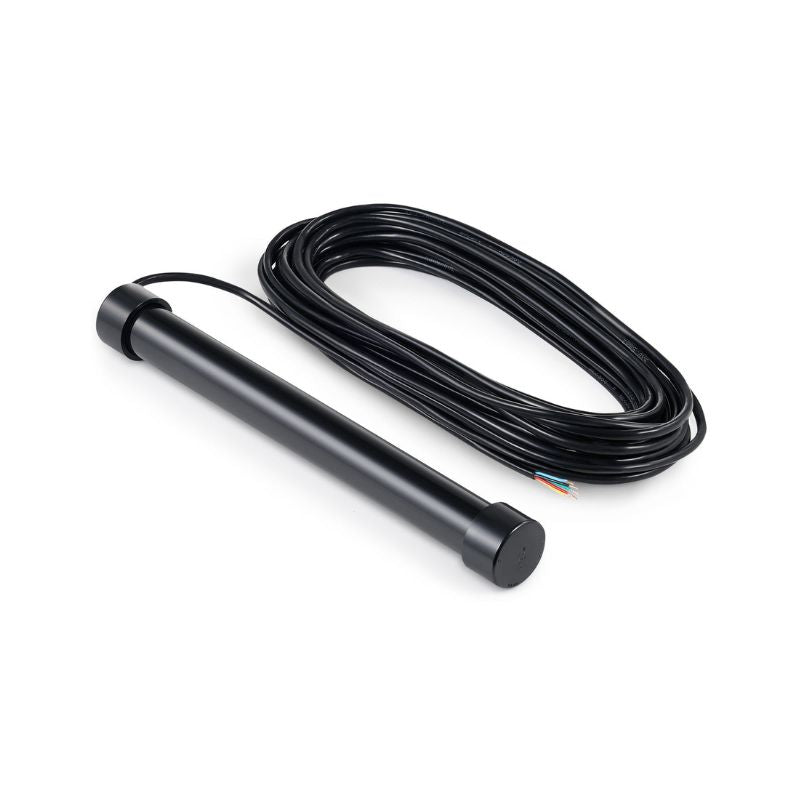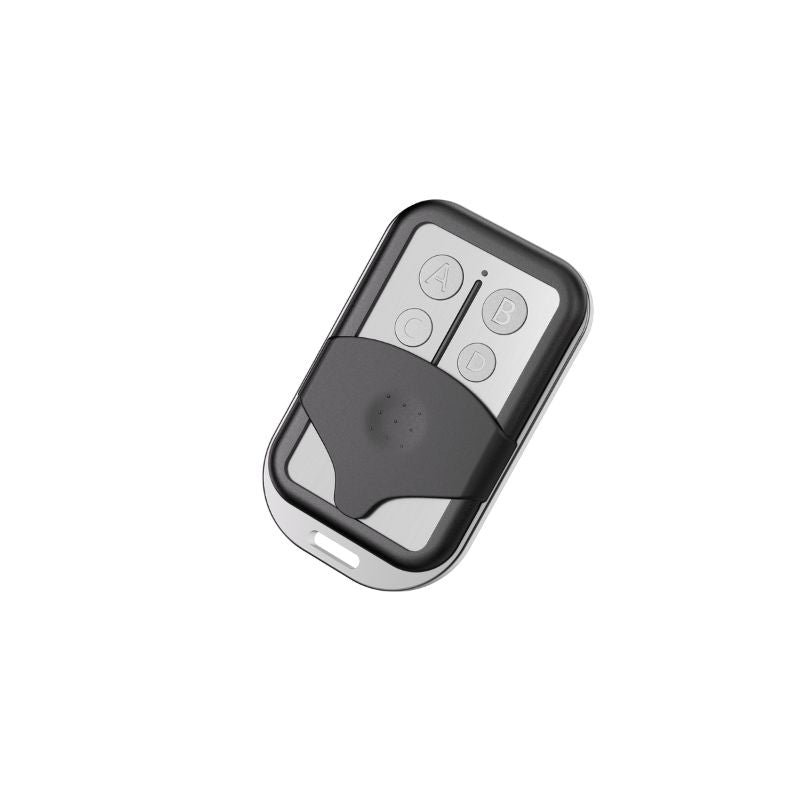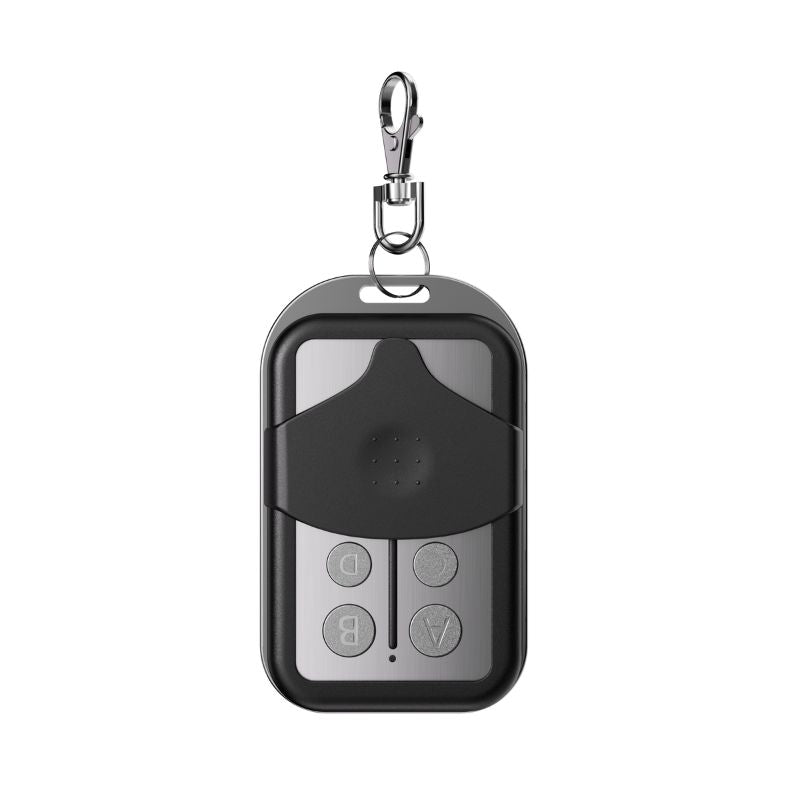If you already have a driveway gate, or even if you are still just planning to install one, an electric gate lock might be one of the smartest upgrades you can make.
It adds an extra layer of security, convenience, and control to the way you operate your gate, especially if you already use an automatic gate opener.
The problem, though, is that many people don't know what to look for when buying one, and they end up with electric gate locks that are either incompatible with their driveway gates or just a nightmare to install.
But that will not be the case for YOU!
We are taking you through the key things to look for when buying an electric lock for your driveway gate, and we will take the time to explain why these factors matter so you can make your decision with utmost confidence.

How to Buy an Electric Gate Lock for Your Driveway Gate: Key Factors
1. Make Sure it Matches Your Type of Gate (Swing or Sliding)
The first and most important thing when buying an electric gate lock is to make sure it matches the kind of gate you have. Electric locks are designed differently for swing gates and sliding gates, and so, they cannot be used interchangeably.
- Electric gate locks for swing gates typically use magnetic or solenoid-style locks that secure the gate leaf to the post when it’s closed. They’re designed this way to resist the leverage of the gate moving in or out.
- Electric gate locks for sliding gates, on the other hand, use latch or bolt mechanisms that prevent the gate from sliding open until power is applied.
Choosing the wrong type of electric gate lock is a disaster: it can cause the lock to misalign or jam over time.
Most manufacturers clearly indicate whether their lock is for a swing or sliding setup, so it should be pretty obvious. But still, double-check this before you buy.
2. It Must Be Compatible with Your Driveway Gate
Not all electric locks fit every kind of driveway gate, and even more striking: not all electric gate locks for swing gates fit every swing gate.
The lock’s mounting and strike plate design need to align with the gate’s structure, and this differs depending on whether your driveway gate is made of wood panels, wrought iron pipes, aluminum frames, or chain-link.
- A solid panel gate can handle heavier or recessed locks.
- A pipe or tubular gate may need a bracket kit or surface-mount design.
- For chain-link gates, look for a universal-fit electric lock that can attach securely without twisting the mesh.
So, always check with the manufacturer to see if the electric gate lock fits the type of gate you have. Most models fit a wide variety of gate types and designs, including the most popular ones, but you must still double-check to confirm.
Check Automatic Gate Opener Compatibility
If your gate has an automatic opener, make sure the lock is compatible with the opener’s control board. Most good locks can connect directly so that the lock automatically releases when you activate the opener.
So, check the electric lock’s supported voltage and output type, and ensure it matches your gate opener before purchasing.

3. Check Key Performance Features: Power, Current, and Response Time
Electric gate locks are powered devices, and not all of them operate the same way. A quick look at the following important electric gate lock specs will tell you everything you need to know about how good it is:
- Operating Voltage: Most driveway gate locks run on 12V or 24V DC. Match this to your opener or power supply.
- Max. Current and Rated Power: These tell you how much power the lock consumes when active. A higher-rated model, for example, will hold more force but may require a stronger power source.
- DC Impedance: This determines how efficiently the lock uses power and how it resists voltage fluctuations. The higher, the better.
- Response Time: A fast lock (typically under one second) ensures smooth coordination with your opener.
If your lock draws too much current or responds too slowly, it can cause synchronization issues, which means your gate opener might try to move before the lock releases.
4. Check Security Features: How It Locks and Holds
At the end of the day, an electric gate lock is about security. Look for the holding force rating: it tells you how much force it can resist before giving way.
For magnetic locks, the holding force rating is usually between 660 lbs(300kg )- 2600 lbs(1200kg).
Fail-Secure vs Fail-Safe Electric Lock
You’ll also want to consider fail-secure vs fail-safe:
- Fail-secure locks stay locked during a power outage (good for security).
- Fail-safe locks unlock during power loss (better for emergency exits).
If you live in a high-security area or your gate is a main perimeter barrier, go fail-secure with high holding force. If safety and quick exits are the priority (like for a family home), a fail-safe may be more practical.
5. Check Durability: Weather Resistance and Build Quality
Driveway gates face sun, rain, dust, and sometimes snow, so before buying, ensure your lock can handle it all. Look for the following features:
- Material: Stainless steel, zinc alloy, or anodized aluminum resists corrosion best.
- IP Rating: A rating of IP65 or higher is ideal for outdoor use, ensuring protection against dust and water.
- Temperature Range: Check that it operates well within your local climate. Some are typically -20°C to 55°C (or -4°F to 130°F).
Cheaper indoor-style electric locks might look the part, but fail quickly outdoors. Always pick a weatherproof, outdoor-rated model that matches your climate and gate exposure.
6. Ease of Installation
Electric gate locks vary in how they mount, so it is important to choose one that is not complicated to install. Some require precise alignment with the gate post or strike plate, while others have adjustable brackets that make installation easier.
Look for:
- Clear wiring diagrams and labeled terminals
- Pre-drilled mounting holes or universal brackets
- Plug-and-play compatibility with your opener
Even a strong lock won’t perform well if misaligned or loosely mounted. A model that’s easy to wire and adjust will save you hours of frustration (and possibly a service call).

7. Other Features That Matter: Size, Weight, and Cord Length
There are other minor electric gate lock features that might seem minor, but they can make a big difference in practicality.
- Weight: A heavier lock usually means stronger materials, but make sure your gate and hinges can handle the added weight.
- Length of Power Cord: If your power source is far from the gate, a longer cable or weatherproof extension option will make installation easier.
- Dimensions: Check the lock’s physical size to ensure it fits comfortably on your gate without interfering with hinges, latch arms, or gate sensors.
A lock that’s too bulky or too light-duty can cause issues over time, either from stress on the frame or from misalignment due to vibration and movement.
Recommended Electric Gate Lock for Driveway
Zumi's automatic gate lock offers reliable security for your swing gates, locking them automatically as soon as they close. This metal electric lock is compatible with various gate types, including panel, pipe, and chain-link, and works seamlessly with 12-24V gate openers.
With an IP55 rating, it is built to withstand the elements, performing flawlessly in harsh weather conditions, from heavy rain to extreme temperatures.
Constructed from durable galvanized metal, this automatic gate latch ensures your gates stay secure without any wobbling, even in high winds.
Installation is simple and quick, with clear instructions provided, along with two backup manual keys for added peace of mind.
Final Thoughts
If you’re unsure where to start, begin by identifying your gate type (swing or sliding), checking your opener’s voltage, and looking for outdoor-rated models with a solid holding force.
From there, you’ll be able to narrow down options that truly fit your setup and give your property the security upgrade it deserves.



